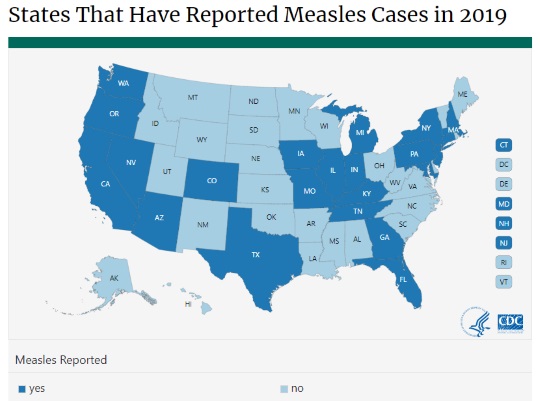Minnesota Amish Lose Appeal In “Gray Water” Case
A case that we’ve followed for some time now reached another point in its journey through the court system. On Monday a Minnesota Court of Appeals upheld the original decision. The article in the Post Bulletin summarizes recent events in the matter:
The Minnesota Court of Appeals upheld a ruling Monday that would require four Fillmore County Amish families to install subsurface sewage treatment systems despite religious objections.
Ammon Swartzentruber, Menno Mast, Amos Mast and Sam Miller filed suit in April 2017 against the Minnesota Pollution Control Agency and Fillmore County over concerns that the agency and county were requiring them to install a wastewater system for gray water.
Judge Joseph Chase ruled in April 2019 that the men were not exempt from county and Minnesota Pollution Control Agency requirements that rural residences have subsurface sewage systems for disposing of residential wastewater. Chase found that the four men had sincerely held religious beliefs, and the government’s regulation to install a septic system was burdensome on the exercise of those beliefs.
Following that ruling, the men filed a motion asking Chase to amend his ruling or grant them a new trial in the yearslong struggle over residential wastewater disposal regulations. That motion was denied, and the case was appealed to the Minnesota Court of Appeals.
In this appeal, it sounds like the court agreed in part, but cited a compelling interest regarding public health and the environment:
In the appeal to the high court, the men argued that the district court erred by denying their claims that mandating the installation of the septic systems violated their freedom of conscience under the Minnesota Constitution and the Religious Land Use and Institutionalized Persons Act.
While the district court ruled that installing the septic systems would be burdensome on the exercise of their religious beliefs, the government has a compelling interest in protecting human health and the environment, and there was no less-restrictive means.
The Amishmen would like to use an alternative mulch basin system, but the court deemed it insufficient based on the evidence it was provided.
The men’s attorney Brian Lipford says that the next step will likely be appealing the case to the Minnesota Supreme Court.
For those interested in more information, expert witness Karen Johnson-Weiner discussed the case and the nuances surrounding it in a 2019 post.




Huh? Installing a subsurface sewage system could become a very successful business for these four men if they would only humble themselves. Instead they want to fight this blessing in court. I thought that especially this Amish community doesn’t believe in going to court according to Mathew 5:25. No wonder so many young folks are leaving the Amish faith.
Mulch basins seem so unexceptionable . . .
I wonder why the authorities set their collective face against them.
https://compliantfarms.com/wp-content/uploads/2018/01/Grey-Water.pdf
Unexceptionable
Yep, let’s use a cat litter box for humans. Yuck!
"Unexceptionable" -- cat litterbox
“Reader”, your comment seems so — well, I was about to write “tangential”, but I’ll instead go with “loopy” — that it makes me wonder if you know what greywater is (it doesn’t contain excreta; no “litterbox” involved) or if you’ve informed yourself on how mulch basins are meant to work.
Hello bad name caller
Im perfectly imperfect. Just because something is suppose to be a certain way doesn’t mean that it will be that way. Any entrepreneurs needing a business idea? Try subground sewage system vs mulch basin system.
Back on Point
Eric, thanks for keeping us up to date on this case. I hope the MN Supreme Court elects to accept the appeal so that the families involved will – whichever way the Court rules – feel that their religious-based concern has been respected enough to have at least been given consideration at every possible level.
Graywater
Gray Water systems are used all over the country and are just fine.
They are easy to install and use and are environmentally friendly.
Basically, it is water that comes from the sink, shower, and washing machine. So the water that is released into the ‘mulch basin’ may contain; traces of dirt, food, and hair. All environmentally friendly.
People are allowed to use harmful weed killer and bug spray on their property, yet the Amish can’t let sink water flow into a mulch basin? Yeah, something is wrong there.
Sadly, some officials try to force the installation of subsurface septic systems which are more expensive. The cost can range from $5,000 -$15,000 per house. There are a lot of factors that can affect the cost.
If there are 10 Amish homes, the contractor who does this work can make $50,000 to $150,000. That’s a lot of money. So don’t be surprised if some money is passed as cash under the table to local officials to force this work to be done.
Also, this could be a silent push to move the Amish out. A developer could be eyeing this land for use at some point in the future. There is a developer that bought land to build on 10 to 15 years later. He simply is waited for the community to continue to grow before he builds and can charge more.
In my opinion
I find it arrogant to think that the Amish man can simply be pushed of his land. The Amish man surely is not a lover of money who can be tempted to sell. Throughout history a Amish settlements succeeded or failed for three reasons: 1) ability to provide an income 2) ability to farm various crops 3) access to clean drinking water. Therefore a subsurface sewage system would only enhance these important life sustaining elements. However, randomly placed subsurface sewage system are still a far cry from the comfort of indoor bathrooms.
In my opinion, the cost of such system is the only valid argument that a mulching basin should be considered as acceptable. As many Amish families might not be able to afford the subsurface system. Or if creativity is permitted, then perhaps a self-composing commode and gray water basin, such as seen in RVs, can be installed and then emptied and cleaned periodically. Personally, I do not wish to find hair on my farm fresh produce.